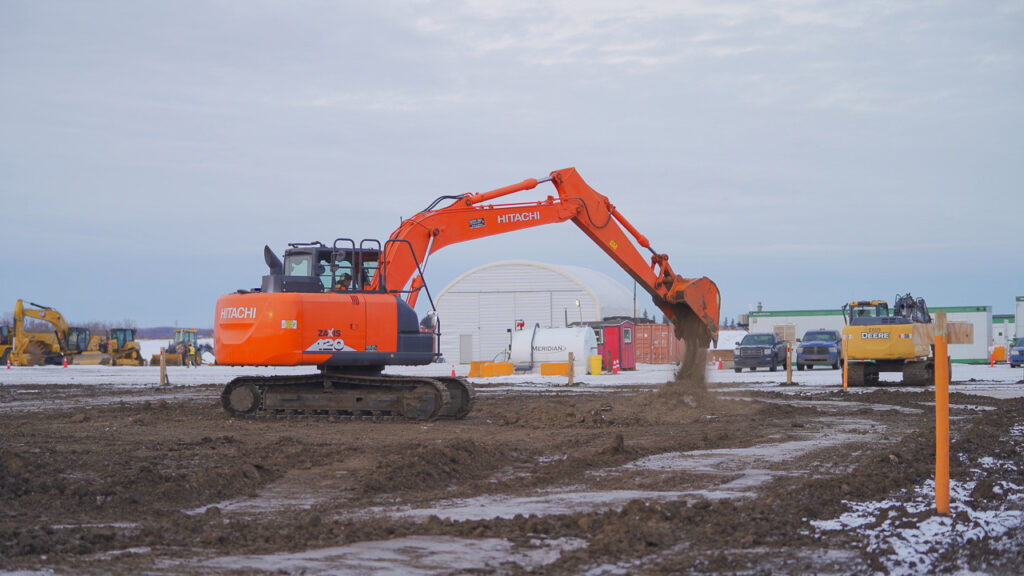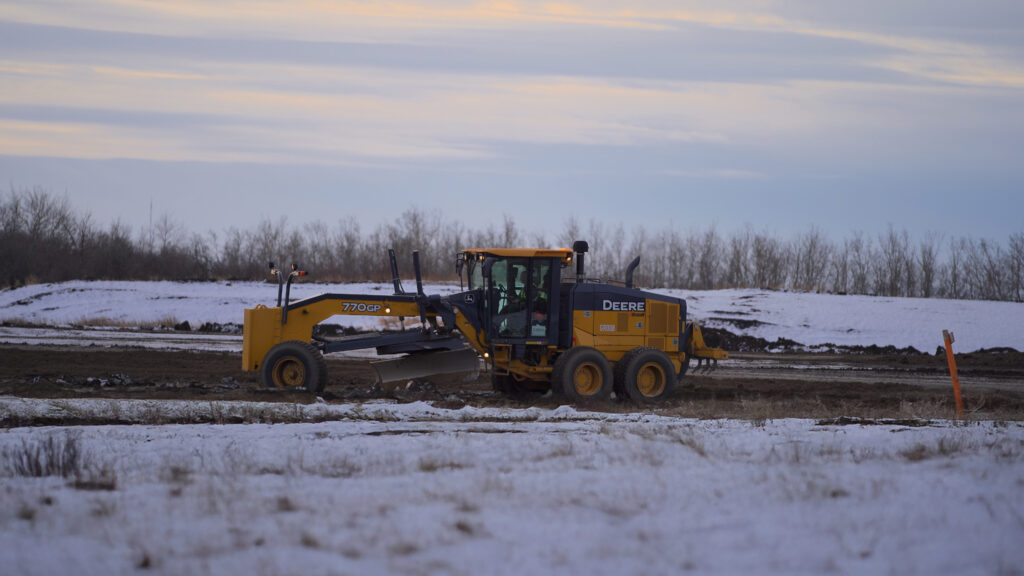Winter may seem like an unusual time to start heavy equipment training, but it can be one of the most strategic choices you make for your career. While cold weather and shorter days may initially seem like obstacles, training during the winter months provides several advantages that can give you a real edge in the heavy equipment industry. Let’s explore why winter is an ideal time to start your training at IHE.
1. Be Ready for Spring’s Job Surge
Winter training positions you perfectly for the busy construction season that begins in spring. As soon as the weather warms up, companies ramp up their projects, and the demand for skilled operators increases. By completing your training during the colder months, you’ll be job-ready when employers start hiring in the spring, giving you a head start over those who wait for warmer weather to train. This proactive approach can put you at the front of the line for job opportunities.

2. Gain Real-World Experience in Challenging Conditions
In Canada, winter conditions are an unavoidable reality in the heavy equipment industry. Training during winter provides a unique opportunity to learn how to operate machinery in snow, ice, and low-visibility conditions, a skill that is invaluable in the field. Developing the ability to handle equipment in harsh weather not only prepares you for real-world job sites but also makes you a more versatile and highly sought-after operator. Employers value workers who can confidently perform in all seasons, especially when winter presents its unique challenges.
As an operator, you’ll often work in the dark, whether it’s early morning or late afternoon during winter. Experiencing these conditions for the first time on a job site can be overwhelming, as the atmosphere is vastly different. At IHE, we ensure our students get hands-on practice in these scenarios, so they’re ready to tackle any environment with confidence.
3. Improve Your Skills with More Hands-On Training Time
At IHE, winter training allows you to maximize your hands-on practice. Our courses are designed to ensure you get significant time operating the machinery in a range of conditions. This focus on practical experience helps you build confidence in your skills and ensures you’re fully prepared to take on any job. Plus, with our expert instructors providing guidance every step of the way, you’ll leave our program with the knowledge and experience needed to excel in your career.
4. Showcase Your Dedication and Commitment
Choosing to train in winter demonstrates a level of dedication that stands out to employers. It’s not just about learning how to operate equipment—it’s about showing that you’re willing to face tough conditions to achieve your goals. Winter training highlights your resilience and determination, traits that are highly valued in the heavy equipment industry. When companies are looking to hire, they’re seeking people who can handle the challenges of the job, no matter the season.
5. Stay Competitive All Year Long
Many construction and resource-based industries don’t slow down in winter, and neither should you. Training in the winter months allows you to keep your career momentum going year-round. By completing your certification before spring, you’re showing employers that you’re always ready to move forward, even when conditions are less than ideal. This kind of mindset can set you apart and make you a top choice for employers who need dependable, well-trained operators for year-round work.
Conclusion
Training in winter isn’t just about learning how to operate heavy equipment—it’s about positioning yourself for success in a competitive industry. At IHE, we prepare you for the real-world demands of the job, no matter the season. By the time the snow melts, you’ll have the skills, experience, and confidence to step into the workforce and take your career to the next level.
So why wait for spring? Embrace the cold and start your heavy equipment training this winter at IHE. You’ll be ahead of the curve, ready to tackle whatever comes next.
